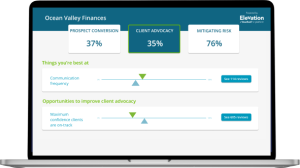Mistakes are an inevitable part of any business, including financial advice. However, when the root cause of the issue isn’t addressed, errors tend to recur, impacting both the firm and its clients.
The aviation sector, with its meticulous ‘black box thinking’ provides a remarkable example of best practice, by actively trying to learn from every mistake. Financial advice businesses which adopt the same approach could leverage failures to foster a culture of continuous improvement.
Understanding the Aviation Paradigm
Central to the investigation of every aviation mishap is the plane’s black box (which is actually orange, making it easier to see in the case of a crash). This device captures all of the aeroplane’s crucial data such as cockpit dialogues, equipment readings, and flight paths. It can withstand temperatures of over 1000*c and impacts of immense magnitude, all to leave a lasting record of what took place.
Whenever challenges arise, the aviation industry rigorously analyses black box data to pinpoint not just what went wrong, but why it went wrong. Was the error human, mechanical or environmental? And it’s not just issues that are reviewed, but everyday operations to ensure efficient operation of the plane.
What’s more, this information is then shared across the industry, leading to enhanced pilot training, aircraft design and air traffic control procedures.
In short, mistakes are to be learned from, not hidden.
This approach has led to an unparalleled safety record, resulting in it being roughly 40x more dangerous per mile to drive to the airport than it is to take a flight.
A black box for financial advice firms
Issues in financial services are rarely investigated to such a degree. Problems are often put down as “one offs”, “misunderstandings” or “difficult clients”. But take a minute to think about how transformative it could be if firms adopted “black box thinking” into their operations. Taking the time to find the root cause of issues means that a mistake isn’t a setback, it’s a valuable source of insights.
Key data points in a financial advice firm’s ‘black box’ could include:
- Client meeting records:
capture how advisers interact with the client. Are there certain phrases, actions or approaches which created better client outcomes? - Progress to goals:
regularly assess if clients are on track and pinpoint deviations – was it the financial plan, external factors, or client actions causing the divergence? - Operational time metrics:
measure the time taken for each stage of the advisory process. This will highlight bottlenecks and help streamline operations. - Internal team feedback:
insights from team members about process efficiency, client handling, and collaboration challenges.
Client feedback:
direct insights into service perception, areas of improvement, and potential opportunities.
Five-step ‘black box’ implementation guide
Embarking on the ‘black box’ journey demands a strategic approach. Here’s a distilled, actionable blueprint:
- Start collecting data: you’ll need data to analyse, so start collecting it from everywhere that will inform your ‘black box’ data reviews. Detailed client feedback is one of the most important data points a firm can get.
- Promote transparency and openness: champion a firm culture where setbacks are discussed and lessons are drawn, not hidden or penalised.
- Hold Regular review sessions: dedicate time for in-depth ‘black box’ data scrutiny. This is not about assigning blame, but about understanding recurring challenges and streamlining processes.
- Evolve based on insights: after identifying areas of improvement, implement changes decisively. This could mean rethinking client communication protocols or refining risk assessment methodologies.
- Maintain the momentum: the essence of black box thinking is its iterative nature. Periodically revisit the data, ensuring that improvements are having their desired effects and spotting new areas of enhancement.
Turning insight into action
The thought of spending precious time on analysing more data within the business may be daunting, yet the rewards make it worth the investment. ‘Black box thinking’ will help minimise future issues, increase client satisfaction and boost the profitability of the firm.
It’s essential to remember that the journey to mastery in the financial advice space, much like aviation safety, doesn’t lie in sidestepping challenges or covering up issues. Instead, it’s about cultivating a culture of continuous learning and relentless evolution.
In an industry where trust is paramount, this mindset can be the cornerstone of deepened client relationships and an enhanced experience. The question isn’t whether financial advice firms will face challenges. The real question is: are challenges just annoyances to be dealt with or opportunities for growth, learning, and excellence?
As with many things in life, the way a situation is approached will determine its outcome. Will you use “black box thinking” to create a better business, or keep dealing with problems? We have evidence of its effectiveness from aviation, but the choice is yours.




